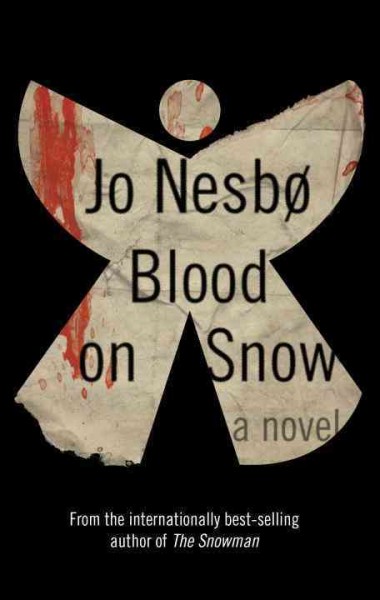April Reads: Reviews of Donna Leon, Joe Nesbo and Ted Lewis
Now that you’ve (hopefully) adjusted to the time change, survived spring break and Easter or Passover, it’s time to “spring ahead” and tackle a new stack of books. This month brings a gritty Scottish trilogy, a reissue of a British cult classic, a chance to visit Venice vicariously, and more.
Falling in Love
Donna Leon (Atlantic, April 7)Leon’s 24th installment in her popular Venetian-set series featuring Commissario Guido Brunetti hearkens back to the Italian detective’s very first outing, 1992’s Death at La Fenice. Brunetti returns once more to the world of opera when famous soprano Flavia Petrellithen—whose name he cleared decades earlier when she was accused of poisoning a German conductor in Fenice—returns to Venice to perform Tosca. Unfortunately, Flavia brings not only her talent back to her native Italy but also her stalker, who’s been leaving her flowers after her performances all over the world, culminating in covering her Venetian dressing room in roses. When the unknown admirer turns violent, Brunetti realizes that this fan has more than music on his—or her—mind and it’s up to Brunetti to act before obsession turns into something more deadly.
Jo Nesbø, translated from the Norwegian by Neil Smith (Knopf, April 7)Another stand-alone (following 2014’s The Son) from the author of the acclaimed Det. Harry Hole series, Nesbø’s latest focuses on Olav, a “fixer” for one of Oslo’s most powerful crime bosses. Olav is very good at his job—in other words, he’s a highly efficient killer. But for a hit man, Olav is also surprisingly sentimental, pining for a woman he sees only on the subway and even letting his own feelings color his judgment about an important job he’s assigned by his boss, Daniel Hoffman. There’s action and rumination in equal measure, as Nesbø is wont to do, and, as in all of Nesbø’s novels, nothing should ever be taken at face value.
Where They Found Her
Kimberly McCreight (Harper, April 14)The discovery of the body of a newborn in the woods near an affluent New Jersey college town sets the tense events of McCreight’s sophomore effort (after 2013’s Reconstructing Amelia) in motion. Told in fragments from perspectives of three very different women—a reporter still recovering emotionally from her own miscarriage, a teenager looking for her hard-partying mother, and a local PTA president whose perfect life is crumbling—the story involves so much more than identifying the baby girl, though that remains the driving force. As the town becomes awash in rumors—McCreight cleverly integrates the Internet comment sections of the local news stories, which perfectly encapsulate the growing hysteria—secrets many residents believed were buried long ago reemerge. Even readers familiar with the psychological suspense subgenre may find themselves pleasantly shocked by all the plot’s many twists and turns.
GBH Ted Lewis (Soho Crime, April 21)
Out of print for years, Lewis’s ultra-dark 1980 tale of the downfall of a London crime boss who specializes in violent pornographic films, known as “blue films,” inspired many of today’s genre heavyweights on both sides of The Pond. Lewis (1940-1982) is best known for his 1971 novel Get Carter, which became a film starring Michael Caine (and was later remade with Sylvester Stallone but you can skip that one), another story of the London underworld. GBH—which, for those of you not up to date on your British legal slang, stands for “grievous bodily harm”—tracks the slow but inevitable decline of George Fowler as his vast porn empire implodes and he’s forced to hide out in a sleepy English seaside town. While there’s certainly an outside threat, Fowler bears equal, if not more, responsibility for the collapse of his illegal kingdom, a fact that becomes increasingly clear as Lewis alternates between Fowler’s frantic last days in London and his time squirreled away in a beachfront bunker of sorts. Admired by everyone from Derek Raymond to Dennis Lehane, Lewis is a must-read for all noir fans.
The Glasgow Trilogy: The Necessary Death of Lewis Winter, How a Gunman Says Goodbye, and The Sudden Arrival of Violence
Malcolm Mackay (Mulholland, April 21)
This hard-hitting trilogy, already a hit in Mackay’s native Scotland, is the perfect follow-up to Ted Lewis’s GBH. Set in Glasgow’s criminal underworld, the trilogy—it’s really worth your while to read all three—tells the interconnected story of hit men, the crime boss who employs them, the men they kill, and police who are either trying to catch them or are secretly feeding information to various criminals. There are so many double- and triple-crosses over the course of three books that it might behoove readers to make a flowchart of alliances, just to be sure. Book One centers on the young gunman Calum MacLean, recently hired by crime boss Peter Jamieson and tasked with taking out a rival, the titular Lewis Winter. Of course, things don’t go smoothly but Calum is back for Book Two, when he’s caught in the middle of a difficult situation between Jamieson and his longtime gunman, Frank MacLeod, who, at 62, may have aged out of the killing business. But being a hit man usually doesn’t come with a great retirement package. Everything comes to a bloody head in Book Three—for everyone who made it that far, of course—and it’s anyone’s guess who will survive to see the end of the trilogy. One thing is certain: no one makes it out unscathed.
Order Blood on the Snow from the Strand!



